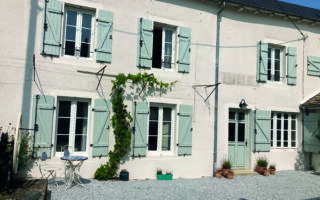Personal Finance in France: an Introduction

PERSONAL FINANCE:
Banking in France explained
Whether you plan to live in France or have a second home there, it will all be easier if you have a French bank account. It also makes paying bills simpler – and some organisations such as phone companies or utilities may insist that you set up a Direct Debit or prélèvement. The easiest bank account to set up is a ‘compte courant’ (current account), to pay bills and everyday French expenses, and have a cheque book. This type of account is usually free to set up but charges start to apply if you take up any of the special ‘services’, such as a bank card to withdraw money from cash points.
Should you wish to open a joint bank account, you can choose for it to show under both names or just either/or. In the former case both partners must sign, and in the event of one partner dying the account will be frozen until the will has been proven. With the latter arrangement, either partner can sign and draw on the account.
The ‘compte sur livret’ or ‘livret A’ is a separate deposit account that earns a little interest as you go, but can be more restrictive as far as transfers and withdrawals are concerned.
Banks are required to disclose, at the very least in an annual statement, the amount and nature of any charges applied against your bank account. It’s a criminal offence to write a cheque that would cause your account to become overdrawn – there are fines for the first offence and harsh consequences for anyone who makes this mistake more than once. However, the most common form of payment is by ‘Carte Bleue’, a debit card that draws funds from your account. You can obtain a short-term overdraft allowance from your bank, but just make sure to know the exact amount of your overdraft limit as charges can be quite high.
IN PRACTICE…
You may be asked to present further identification – your passport, driver’s licence or carte de séjour (residence permit) – when paying by cheque and even by credit card in some establishments, although now, with the pin number system, this is becoming rare. Provided that your card is equipped with the chip, contactless payment, where you don’t need to enter a code and the card just needs to be near the reader, is already available in most supermarkets and larger stores for small transactions under €20. Payment via smartphone is also becoming more prevalent but mostly in larger towns and cities.
French banking hours can be interesting. In general, they are open from 9am-5pm, Monday to Friday. Some banks will even open on Saturdays mornings and late on certain evenings. Lunchtime closing is the norm in smaller towns so it’s best to check with your local branch for their individual hours.
Once you set up your user accounts and learn your way around the site in French, online banking can be quite easy to get used to and save you more than one trip to the bank, and then you won’t have to worry about the opening hours…
For further information, please visit the Finance Zone >>
Share to: Facebook Twitter LinkedIn Email
By Theo Gittens
Leave a reply
Your email address will not be published. Required fields are marked *



